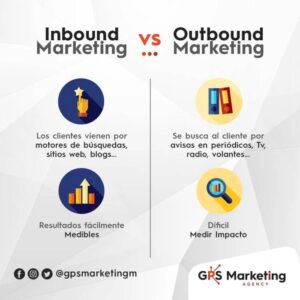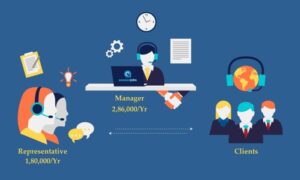
In today’s fast-paced digital landscape, AI marketing software has emerged as a game changer for businesses seeking to enhance their marketing strategies. By leveraging the power of artificial intelligence, these tools streamline processes, optimize campaigns, and provide valuable insights that drive performance. As more companies adopt AI-driven solutions, understanding their benefits and functionalities becomes essential for staying competitive.
This article delves into what AI marketing software entails, explores its key features, and highlights real-world examples of successful implementation. We also discuss the role of AI in market research and its impact on public relations and telemarketing, offering a comprehensive view of how these technologies can transform marketing practices.
AI Marketing Software Overview

AI marketing software represents a transformative approach in the realm of digital marketing, leveraging artificial intelligence to optimize strategies and enhance customer engagement. In a rapidly evolving marketplace, such tools have become essential for businesses aiming to stay competitive and relevant. By automating tasks and providing data-driven insights, AI marketing software not only saves time but also allows marketers to make more informed decisions.The significance of AI marketing software lies in its ability to analyze vast amounts of data and identify patterns that would be impossible for humans to detect within a reasonable timeframe.
This enhances targeting accuracy, personalizes customer experiences, and ultimately drives conversions. Key features often found in popular AI marketing tools include predictive analytics, customer segmentation, automated content creation, and performance tracking.
Key Features and Functionalities
The capabilities of AI marketing software vary, but several core functionalities are prevalent across leading platforms. Understanding these features can help businesses select the right tools for their needs.
Predictive Analytics
This feature uses historical data to forecast future outcomes, enabling marketers to anticipate customer behavior and tailor campaigns accordingly.
Customer Segmentation
AI tools can analyze customer data to create refined segments, allowing for more targeted marketing efforts.
Automated Content Creation
Generating relevant content automatically based on user data and preferences can save marketers significant time and effort.
Performance Tracking and Reporting
Most AI marketing software provides comprehensive analytics dashboards that allow businesses to track the effectiveness of their campaigns in real-time.The implementation of AI marketing software has proven successful for numerous businesses across various sectors. For instance, a retail company utilized AI-driven analytics to improve its email marketing campaigns, resulting in a 30% increase in open rates and a 20% boost in sales.
Similarly, a travel agency employed AI tools for personalized marketing, enhancing customer experiences and increasing bookings by analyzing traveler preferences and behaviors.
“AI marketing software has revolutionized the way businesses interact with customers, paving the way for personalized and efficient marketing strategies.”
Market Research Using AI
Artificial Intelligence is revolutionizing the landscape of market research, enabling businesses to gather insights faster and more accurately than ever before. By automating data analysis and predictive modeling, AI tools facilitate a deeper understanding of consumer behavior, preferences, and market trends, ultimately leading to more informed strategic decisions.AI tools can significantly enhance the efficiency and effectiveness of market research processes.
By integrating machine learning algorithms, businesses can analyze vast amounts of data from various sources, including social media, surveys, and purchasing histories. This automation not only speeds up data collection but also uncovers patterns and trends that might be subtle or overlooked by human analysts. For instance, natural language processing (NLP) can be employed to analyze customer feedback and sentiment, providing companies with real-time insights into public perception and emerging demands.
Methods for Integrating AI in Consumer Insights Gathering
To harness the power of AI in market research, several methods can be employed to gather consumer insights effectively. These methods streamline the research process and enhance data quality.
1. Data Mining and Predictive Analytics
Leveraging AI algorithms to sift through large datasets allows companies to predict future consumer behavior based on historical trends. For example, Netflix uses predictive analytics to recommend shows to users based on their viewing history, which increases engagement and satisfaction.
2. Social Media Listening Tools
AI-powered tools analyze social media conversations to gauge public sentiment and identify emerging trends. By monitoring mentions and hashtags related to their brand, companies can adjust their marketing strategies in real time.
3. Surveys and Feedback Analysis
Automating survey distribution and analysis through AI can yield quicker and more insightful results. AI can categorize open-ended responses and identify key themes, improving the quality of insights derived from consumer feedback.
4. Consumer Segmentation
AI enables businesses to segment their target audience more precisely by analyzing demographic data, purchasing habits, and preferences. This targeted approach allows for personalized marketing strategies that resonate more with specific consumer groups.
5. Competitor Analysis
AI tools can track competitor activities, providing insights into market positioning and strategies. This information is crucial for making informed marketing decisions and adjusting tactics accordingly.The impact of AI-driven market analysis on strategic marketing decisions is profound. By utilizing data-driven insights, businesses can refine their marketing campaigns, allocate resources more effectively, and anticipate market shifts. For instance, companies like Amazon utilize AI to adjust pricing dynamically based on consumer demand and competition, which enhances their market competitiveness.
Additionally, businesses can make proactive decisions about product development by analyzing trends before they become mainstream, ensuring they are always one step ahead of the competition.In summary, integrating AI into market research not only streamlines processes but also provides invaluable insights that shape marketing strategies. By leveraging these advanced tools, businesses can enhance their responsiveness to market changes and consumer needs, leading to greater success in their marketing endeavors.
AI in Public Relations and Telemarketing
The incorporation of AI technologies in public relations (PR) and telemarketing is fundamentally altering how businesses communicate with their audiences. AI is not just a tool; it is reshaping strategies, enhancing efficiency, and improving the effectiveness of outreach efforts. By leveraging data analysis, automation, and machine learning, organizations can build stronger relationships with their customers and stakeholders.
Role of AI in Revolutionizing Public Relations Practices
AI is enabling brands to refine their public relations strategies by providing insights that drive more informed decision-making. By utilizing AI-driven analytics, PR professionals can monitor media sentiment in real time and identify trends that influence public perception. This technological advancement empowers organizations to respond proactively to crises and capitalize on positive media coverage.The benefits of AI in PR include:
- Enhanced Media Monitoring: AI tools can scan and analyze vast amounts of data across multiple platforms, identifying mentions of a brand and gauging public sentiment swiftly, allowing for timely responses.
- Personalization: AI enables targeted messaging by analyzing audience data, ensuring that communications resonate with specific demographics, thus increasing engagement.
- Predictive Analytics: Leveraging historical data, AI can foresee potential PR crises, allowing teams to prepare and strategize effectively.
- Content Creation: AI-driven tools can assist in drafting press releases or identifying trending topics, streamlining the content creation process and ensuring relevance.
Benefits of AI Technologies in Telemarketing Campaigns
Telemarketing campaigns stand to gain significantly from AI applications. By utilizing AI, businesses can enhance customer engagement, streamline processes, and improve overall campaign effectiveness. AI enhances telemarketing by allowing for more personalized interactions and efficient lead generation.Consider the advantages AI brings to telemarketing:
- Data-Driven Insights: AI analyzes customer data to identify patterns and preferences, enabling telemarketers to tailor their pitches and improve conversion rates.
- Automated Dialing Systems: These systems reduce the time spent on manual dialing, optimizing call time and allowing agents to focus on engaging with customers.
- Lead Scoring: AI algorithms can score leads based on likelihood to convert, allowing teams to prioritize high-potential prospects for follow-up calls.
- 24/7 Availability: AI chatbots can handle customer inquiries outside business hours, ensuring constant engagement and support.
Comparison of Traditional and AI-Enhanced PR and Telemarketing Strategies
The transition from traditional methods to AI-enhanced strategies in PR and telemarketing emphasizes efficiency and effectiveness. Traditional PR often relied on broad outreach tactics and reactive measures, while AI offers a more proactive, data-driven approach.Key differences include:
- Engagement Techniques: Traditional methods often employed one-size-fits-all messaging, whereas AI-driven strategies provide personalization based on data analysis.
- Response Time: Traditional PR teams may take hours or days to react to media mentions, while AI tools offer real-time monitoring and rapid response capabilities.
- Targeting Accuracy: AI enhances targeting by utilizing customer segmentation and predictive analytics, allowing for more effective audience engagement compared to traditional broad-based strategies.
- Cost Efficiency: By automating repetitive tasks, AI reduces labor costs and allows teams to allocate resources to higher-level strategic initiatives.
AI is transforming public relations and telemarketing, making them more efficient, targeted, and responsive to customer needs.
Conclusion

In conclusion, the integration of AI marketing software into business operations is not just a trend; it’s a necessity for organizations aiming to thrive in a data-driven world. By understanding its capabilities in market research and enhancing customer engagement through public relations and telemarketing, businesses can make informed decisions that lead to improved outcomes. Embracing these innovative tools ensures that companies remain at the forefront of the marketing landscape.
FAQs
What is AI marketing software?
AI marketing software refers to tools that utilize artificial intelligence to analyze data, automate marketing tasks, and enhance customer interactions, resulting in improved marketing strategies.
How can AI improve market research?
AI improves market research by quickly analyzing vast amounts of data, identifying trends, and providing actionable insights that help businesses make informed decisions.
What are the benefits of using AI in telemarketing?
Using AI in telemarketing can enhance customer engagement, personalize interactions, and improve lead qualification processes, leading to higher conversion rates.
Can small businesses benefit from AI marketing software?
Yes, small businesses can leverage AI marketing software to compete effectively by automating tasks, optimizing campaigns, and gaining insights that were previously accessible only to larger organizations.
What are some popular AI marketing tools?
Some popular AI marketing tools include HubSpot, Marketo, Salesforce Einstein, and Hootsuite Insights, each offering unique features tailored to various marketing needs.





